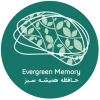To help doctors get a better handle on their patients’ mental state, the American Academy of Neurology (AAN) is urging physicians to assess patients aged 65 and older at least once a year.
The academy recommends that doctors use a mathematical tool that helps quantify their patients’ memory and thinking skills.
Since thinking skills are the most sensitive indicator of brain function and they can be tested cost-effectively, this creates an enormous opportunity to improve neurologic care.
New neuropsychological assessment tools can help physicians optimally care for the elderly. Although there is no cure for mild cognitive impairment, it progresses to dementia if the patient progresses.
We cannot expect people to report memory and thinking problems because they may not recognize that they have a problem or may not share it with their doctors.
As we age, it is important to take care of our health and well-being. Regular check-ups and specialised assessments can help detect and prevent health problems before they become more serious. Here are some common check-ups and assessments recommended for ageing adults:
Comprehensive medical evaluation: A comprehensive medical evaluation includes a review of medical history, physical examination, and laboratory tests. This evaluation can help identify any health issues or risk factors and develop a plan for prevention or treatment.
Vision and hearing tests: Vision and hearing can deteriorate with age, so it is important to have regular eye exams and hearing tests to detect and treat any problems.
Bone density test: Bone density decreases with age, and this can lead to osteoporosis, a condition that increases the risk of fractures. A bone density test can help detect and monitor bone loss and inform preventative measures.
Memory and cognitive assessments: As we age, cognitive decline can occur, and memory problems may develop. Memory and cognitive assessments can help identify early signs of cognitive impairment, such as dementia or Alzheimer’s disease, and develop treatment plans.
Blood pressure and cholesterol screening: High blood pressure and cholesterol can increase the risk of heart disease, stroke, and other health problems. Regular screening can help detect and manage these risk factors.
Cancer screening: The risk of certain types of cancer increases with age, such as breast, colon, and prostate cancer. Screening tests, such as mammograms, colonoscopies, and prostate-specific antigen (PSA) tests, can help detect cancer early when treatment is most effective.
Vaccinations: Vaccinations are an important part of preventative healthcare for ageing adults. Vaccines for flu, pneumonia, shingles, and other diseases can help prevent serious health problems.
In addition to these check-ups and assessments, specialised evaluations may be recommended for ageing adults with specific health concerns. For example, a geriatric assessment may be recommended for older adults with complex medical problems, functional limitations, or cognitive impairment. This evaluation includes a comprehensive review of medical history, physical examination, functional assessments, and other tests to develop a care plan that addresses the individual’s unique needs.
Memory and cognitive assessments can help identify problems and develop treatment plans. Here are some common assessments for elderly individuals:
Mini-Mental State Examination (MMSE): The MMSE is a commonly used test that assesses cognitive function, including memory, attention, and language abilities. It is a brief and easy-to-administer test that can help detect cognitive impairment.
Montreal Cognitive Assessment (MoCA): The MoCA is another widely used test that assesses cognitive function, including memory, attention, and executive function. It is more sensitive than the MMSE for detecting mild cognitive impairment.
Clock Drawing Test: The Clock Drawing Test is a simple test that assesses visual-spatial abilities and executive function. It involves drawing a clock and placing the numbers in the correct positions.
Verbal Fluency Test: The Verbal Fluency Test assesses language abilities, including word retrieval and semantic memory. It involves generating as many words as possible in a specific category, such as animals or fruits.
Trail-Making Test: The Trail-Making Test assesses attention, processing speed, and executive function. It involves connecting a series of dots in numerical or alphabetical order.
Digit Span Test: The Digit Span Test assesses working memory and attention. It involves recalling a sequence of numbers presented orally or visually.
Rey Auditory Verbal Learning Test (RAVLT): The RAVLT assesses verbal memory and learning abilities. It involves learning and recalling a list of words over multiple trials.
It is important to note that these assessments are not diagnostic tools and should be used in conjunction with a comprehensive evaluation by a healthcare professional. Additionally, cognitive decline is not inevitable with aging, and there are lifestyle factors that can be modified to promote brain health, such as exercise, a healthy diet, and social engagement.
In summary, regular check-ups and specialised assessments are essential for maintaining good health and preventing serious health problems as we age. By working with healthcare professionals to identify and address health concerns, ageing adults can maintain their independence and quality of life.
Therefore, one of the goals of the Evergreen Memory Clinic is to check for people over 60 years of age to take preventive measures if they see any changes in memory function and other cognitive functions.
